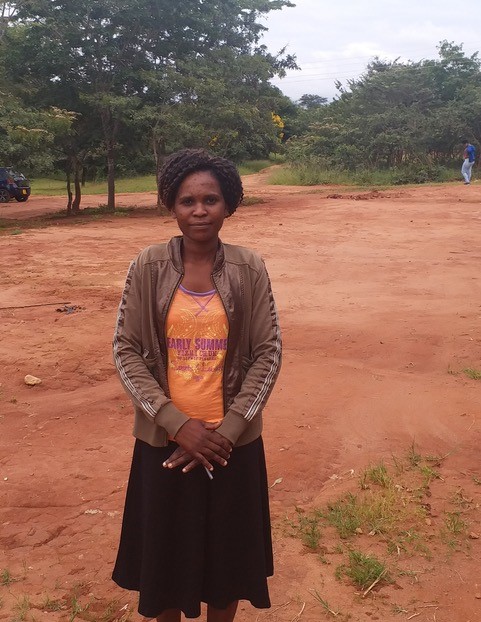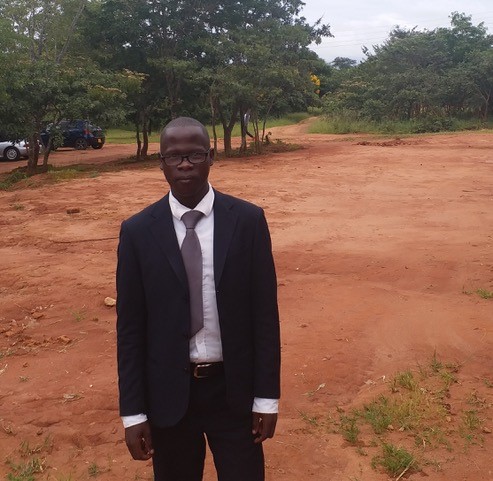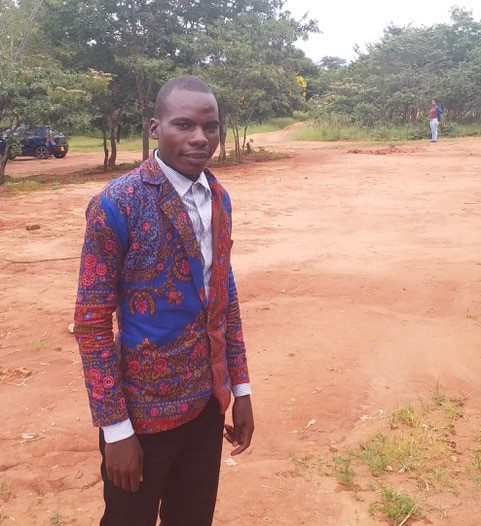A Letter from Tyler Holm, serving in Malawi
May 2019
Write to Tyler Holm
Individuals: Give to E200532 for Tyler Holm’s sending and support
Congregations: Give to D507572 for Tyler Holm’s sending and support
Faculty of Theology: Give to E052124 to support the University of Livingstonia Faculty of Theology
Churches are asked to send donations through your congregation’s normal receiving site (this is usually your presbytery).
The university where I teach, the University of Livingstonia, is a ministry of the Church of Central Africa Presbyterian (CCAP), Synod of Livingstonia. In an American context, it looks somewhat like a Christian liberal arts undergraduate university with the addition of our Bachelors of Theology degree that fulfils the function of a seminary degree. The theology degree was originally intended for preparing individuals called to ordination to pastoral ministry.
Unlike the Presbyterian Church (U.S.A.)’s and other mainline American denominations’ relationships with affiliated universities, the CCAP’s five synods are each developing their own university rather than the national body relating to schools. A minister trained and ordained by one CCAP synod would not necessarily be recognized by another synod, and it is very unusual for a student from the south of the country to go to school in the north. One key reason for this is the distance students must travel to get to school in Africa. Many of our students travel a day or more from their homes to the campus — a single national campus might offer some economy of scale but would be even more remote for many students. While different synods have separate small universities, there has also been collaboration between the synods, particularly between the Synod of Livingstonia and the Synod of Zambia. Since the University of Livingstonia’s opening in 2004, a number of students have come from the Synod of Zambia to study at the Faculty of Theology. After a few years without any Zambian students, we are fortunate that three students joined us this past year.
Malawi and Zambia are closely related countries with several people groups and languages on both sides of the border. Politically there has been a good, peaceful relationship between the two countries. One reason for this may be that the Zambian leader for independence and the nation’s first president, Kenneth Kaunda, was possibly born in Malawi — and his father was a missionary sent to what would become independent Zambia by what would later be the Synod of Livingstonia. Both Kaunda and his father studied at Livingstonia schools in colonial Zambia and Malawi. Since the University of Livingstonia’s opening in 2004, a number of students have come from the Synod of Zambia to study at the Faculty of Theology.
Mary Nkhoma, Gideon Lundu and Edwin Nyirenda are Zambian candidates to be ordained as ministers and will serve in the Synod of Zambia. I trust their time at the university will continue to influence their future ministries. We hope this is an example of cooperation that we will see more of across the CCAP synods. Here I’d like to share the stories of how they experienced their own calls to ministry.
Even as a young child attending Sunday school in Zambia, Mary always felt a strong call to prayer and felt God on her side. She would be the only one out of ten siblings who would finish secondary school (equivalent to high school), but this was not without difficulty. While she was still in secondary school, a relative enticed her parents to send her away to work as a domestic servant. Little time was available to attend school, and she was mistreated. These difficulties have taught her to have courage, and to praise God in everything, saying along with Deuteronomy, “I will never leave or forsake you” and with Jeremiah, “I knew you before you were born.” Her journey has brought her to continue studying, and after graduation she will join the limited number of female ministers in the CCAP.Gideon’s story of being called as a minister in the Presbyterian Church is an unusual one. His parents are active in the church in Zambia. As a youngster, he “always heard about God but did not feel that God was a real part of [his] life. When [his] father talked about God, [he] felt a disconnect.” Despite this, Gideon’s father and several others told him they thought he had gifts in teaching and preaching. He describes how in 2013, while he was still in secondary school, he had a dream in which a man came and told him to “go and preach the gospel.”
Suddenly, he woke up. In discussion with his family’s pastor and other mentors, they accepted this as a true calling. This dream happened before Gideon really started going to church, but he quickly became very involved. Affirming his commitment, he attended worship and served as a lay volunteer. As a student minister being trained at the university, his eloquence and probing mind are an asset in our class.
As a child growing up in Zambia, Edwin was a driven student but faced difficulty because he had to walk one hour to and from school. During these long walks, he would pray. His favorite passage was Proverbs 1:2-7: “The fear of the Lord is the beginning of knowledge, fools despise wisdom and instruction.” But after graduating, he had to accept a job working at a large brewery. The culture at the brewery was not conducive to Christian living, which led him to an existential crisis. He applied to the University of Zambia and was accepted, but again the culture of secular school seemed to be harmful to his character. Meeting with his local pastor, he expressed his desire to join the ministry, but he was just 22 years old, too young for the seminary in Zambia. His acceptance to study at the University of Livingstonia was an answer to prayer.
These students at the University of Livingstonia are some of the outliers who will help lead the church in the years ahead. Our family has been blessed with a number of visits by folks who have experienced many other students’ stories. Those of you who are unable to visit can experience a bit of Malawi while remaining in the U.S. “The Boy Who Harnessed the Wind” is a popular book that has recently been made into a movie. The story relatively accurately portrays many aspects of Malawian life, and I recommend it to those would like to get a greater feel for some of the culture and challenges here. The movie portrays the privilege of even a basic level of education as something that students in Malawi must fight for, sometimes being forced to go to such extremes as sneaking into the library to study while hiding from teachers who may be apathetic or bound by structures that hold students back. The systemic poverty forces the most vulnerable to make difficult choices of immediate need or longer term security. If you are interested in experiencing this part of the world but are unable to visit, have a look at the film on the BBC or Netflix.
Please continue to support our ministry and the work of the University of Livingstonia. The work of the PC(USA) partnering with the CCAP is not possible without your generosity, and we thank you for your continued support. To contribute to my sending and support, please click here. To support the growing programs of the Faculty of Theology, please click here.
Tyler
![]() You may freely reuse and distribute this article in its entirety for non-commercial purposes in any medium. Please include author attribution, photography credits, and a link to the original article. This work is licensed under a Creative Commons Attribution-NonCommercial-NoDeratives 4.0 International License.
You may freely reuse and distribute this article in its entirety for non-commercial purposes in any medium. Please include author attribution, photography credits, and a link to the original article. This work is licensed under a Creative Commons Attribution-NonCommercial-NoDeratives 4.0 International License.


